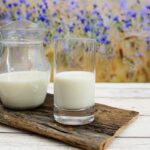Pregnancy is a transformative journey that requires special attention to diet to support the health of both the mother and the developing baby. Making informed dietary choices is crucial, as the right nutrients can foster proper growth, while certain foods can pose risks. Here is a comprehensive guide to what you should and shouldn’t eat during pregnancy.

What to Eat
- Fruits and Vegetables
Fruits and vegetables are rich in essential vitamins, minerals, and fiber. Aim for a colorful variety to ensure a wide range of nutrients. Examples include:
- Leafy greens like spinach and kale (rich in folate and iron).
- Citrus fruits such as oranges (high in vitamin C).
- Berries for antioxidants.
- Carrots and sweet potatoes for beta-carotene.
- Whole Grains
Whole grains provide energy and are a good source of fiber, B vitamins, and minerals like magnesium. Include:
- Brown rice
- Quinoa
- Oatmeal
- Whole-grain bread
- Protein-Rich Foods
Protein is essential for the baby’s growth, especially during the second and third trimesters. Good options are:
- Lean meats like chicken and turkey
- Eggs (ensure they are fully cooked)
- Legumes such as beans, lentils, and chickpeas
- Nuts and seeds
- Dairy products like milk, yogurt, and cheese (opt for pasteurized varieties)
- Healthy Fats
Omega-3 fatty acids are crucial for the baby’s brain and eye development. Sources include:
- Fatty fish like salmon (limit to 2-3 servings per week to avoid excessive mercury)
- Flaxseeds and chia seeds
- Walnuts
- Avocados
- Prenatal Supplements
Even with a balanced diet, certain nutrients like folic acid, iron, and DHA may need supplementation. Always consult your healthcare provider before starting any supplements.
What Not to Eat
- High-Mercury Fish
Excessive mercury can harm the baby’s nervous system. Avoid fish like:
- Shark
- Swordfish
- King mackerel
- Tilefish
- Raw or Undercooked Foods
Raw foods can harbor harmful bacteria and parasites. Steer clear of:
- Raw or undercooked meat, poultry, and seafood
- Raw eggs (e.g., in homemade mayonnaise or cookie dough)
- Unpasteurized dairy and juices
- Processed and Junk Foods
These are high in unhealthy fats, sugar, and sodium, offering little nutritional value. Examples include:
- Sugary snacks and sodas
- Fried foods
- Processed meats like hot dogs and deli meats (unless reheated to steaming hot)
- Caffeine and Alcohol
- Limit caffeine intake to no more than 200 mg daily (about one 12-ounce cup of coffee).
- Avoid alcohol entirely, as it can cause fetal alcohol syndrome and other complications.
- Certain Herbs and Teas
Not all herbal teas are safe during pregnancy. Avoid those containing licorice root, pennyroyal, or cohosh, and consult your doctor before consuming herbal products.
Tips for a Healthy Pregnancy Diet
- Stay Hydrated: Drink plenty of water to maintain amniotic fluid levels and support circulation.
- Practice Food Safety: Wash all produce thoroughly, cook meats to the recommended temperature, and avoid cross-contamination.
- Eat Small, Frequent Meals: This can help manage nausea, heartburn, and fluctuating energy levels.
- Listen to Your Body: Cravings can sometimes indicate a nutritional need, but indulge wisely and in moderation.
By prioritizing a nutrient-dense diet and avoiding harmful foods, you can create an optimal environment for your baby’s development and ensure your well-being. Always consult a healthcare professional for personalized dietary advice tailored to your specific needs during pregnancy.



